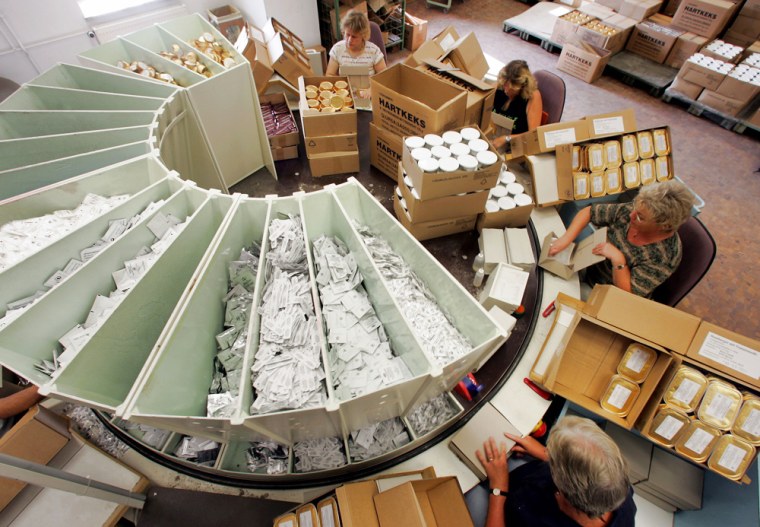LONDON — This is what friends are for.
From Germany, 25 tons of food rations and more on the way. Mexico sent bottled water. And from France, Red Cross workers flew to Baton Rouge to join in the relief effort.
But big is too small a word to describe the international response to Hurricane Katrina — more than 60 nations have reached out and responded to America's call for help.
And it doesn't capture the shock that other countries have over the images that have emerged from the Gulf Coast
Here in Britain and elsewhere newspaper editorials are asking why the world's only superpower appears so helpless.
The Independent newspaper in Britain declared on its front page Tuesday that people were dying because they were poor.
How did it get so bad?
"People are watching this with absolute horror, the scenes around New Orleans. Our televisions have been bombarded with people suffering, looting violence,” said Michael Williams, the deputy editor of the Independent.
And all across Europe people are talking about how America could get it so wrong.
In the Middle East satellite news channels came up with an answer. In a word: "Iraq."
Al Jazeera TV even broadcast a one hour live special — using sound bites from desperate Americans declaring, "I am ashamed of my government."
Several Arab networks claim American can't fight a war in Iraq and battle storm damage at home. One commentator said the natural disaster has put Iraq as the number-one issue in the United States, saying, "most Americans are drawing a link between the Iraq war and the delay in rescue efforts."
Genuine dismay
The criticism from those with an agenda was predictable.
Still there was genuine dismay from Arab countries expecting the U.S. to at least take care of their own.
Egyptian newspapers called it shocking that America was incapable of handling the disaster. Al Akhbar newspaper splashed a headline, "Katrina reveals American racism."
On the dusty streets of Cairo, Nadine Mostafa, a teacher, explained why so many people overseas are baffled by the slow reaction to the disaster. "We're not expecting, you know a country like, a big country to suffer such agony.”
At the London School of Economics, Professor Rodney Baker said the disaster has altered America's image. "I think the real shock to perceptions in the U.K. has been the reminder that although the United States is the richest country in the world, it's really only a country that is half rich.”
Giving what they can
But rich or poor, nations are lining up to help.
How about the image of Afghanistan pledging a hundred thousand dollars?
Or that Singaporeans are now flying rescue helicopters over New Orleans?
Or that Sri Lanka, itself a victim of a national disaster during the tsunami, offered $25,000 to the Red Cross, all it could afford?
So nations with little to offer give what they can perhaps in recognition of America's long history of generosity in times of need.
